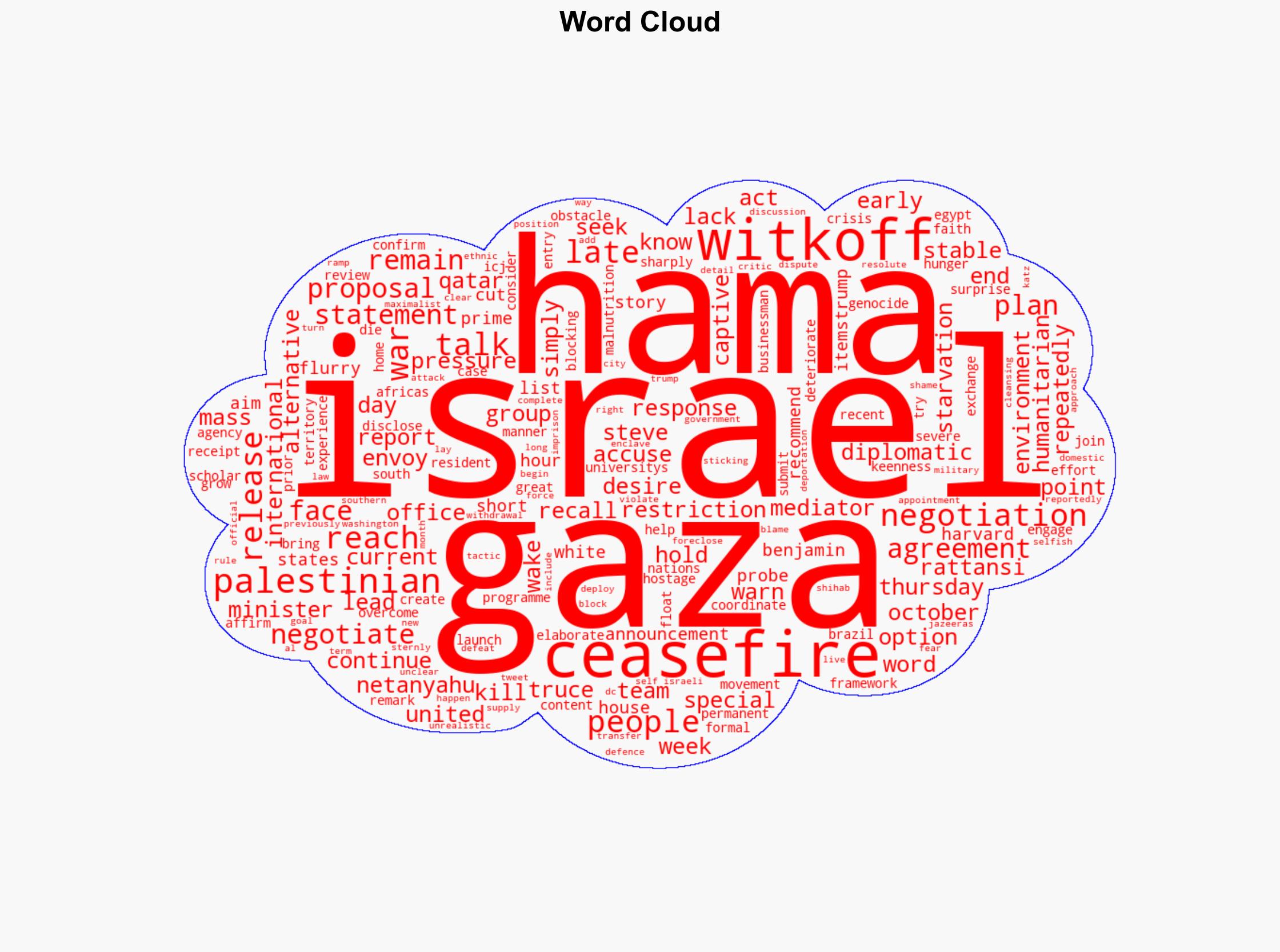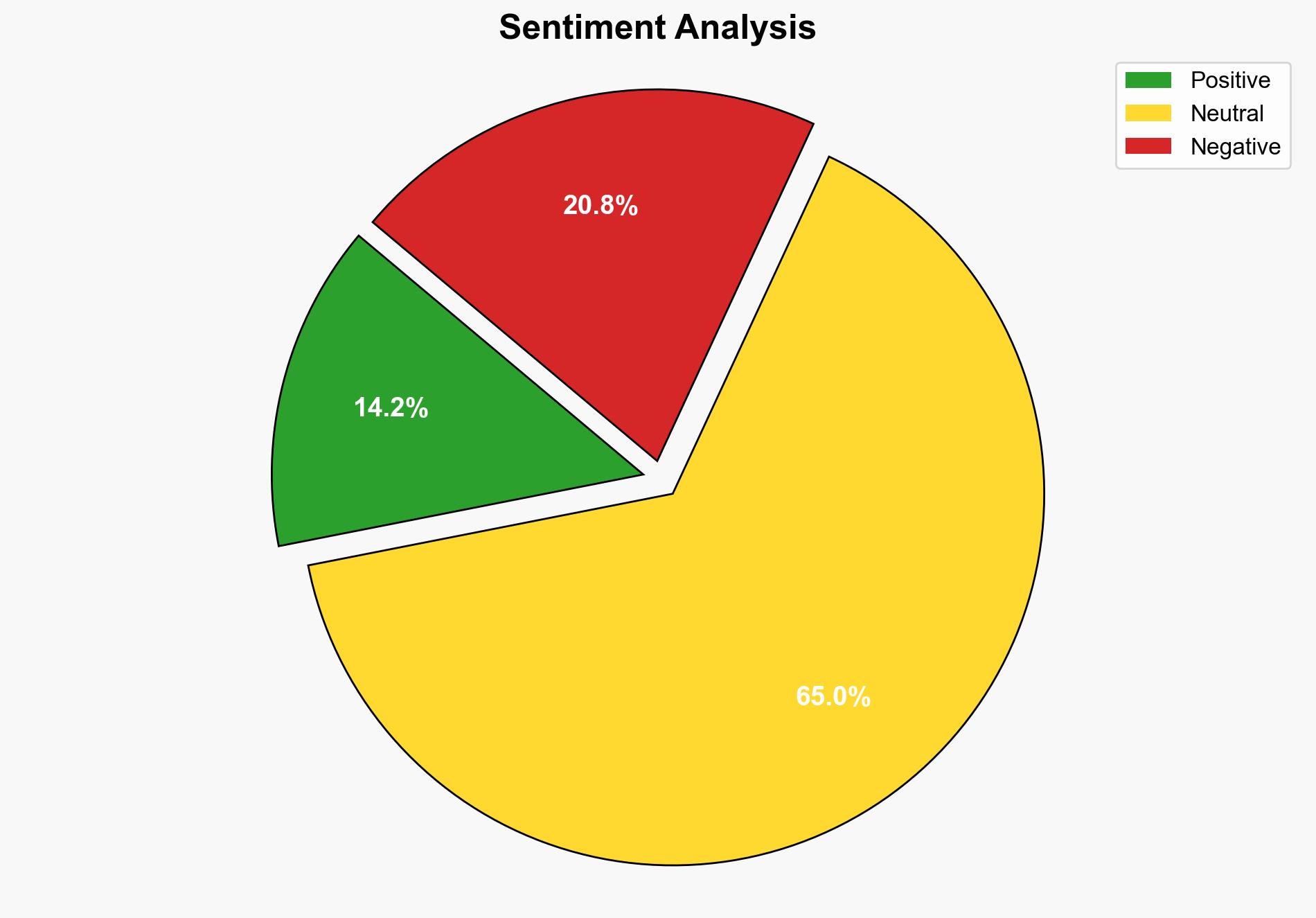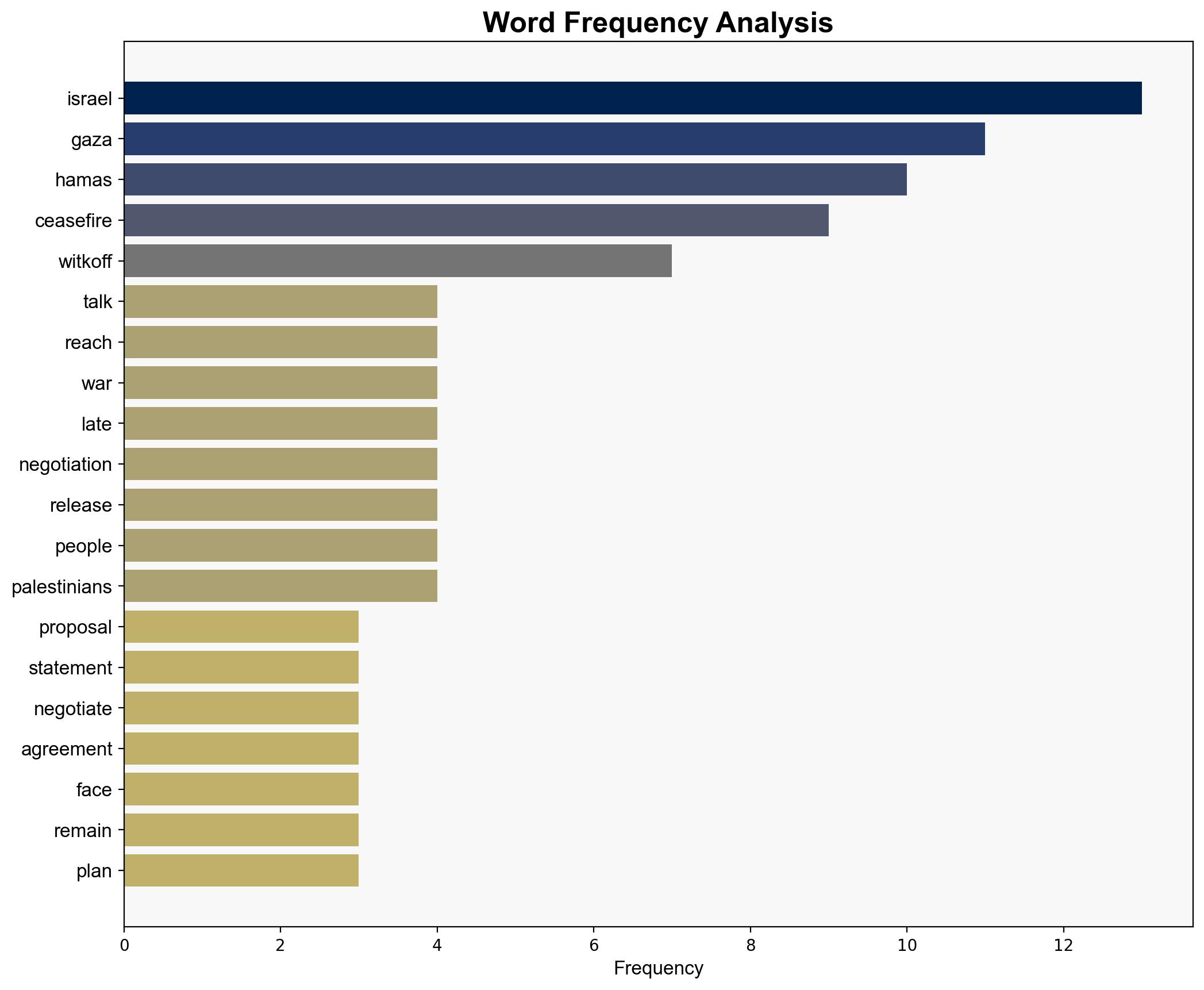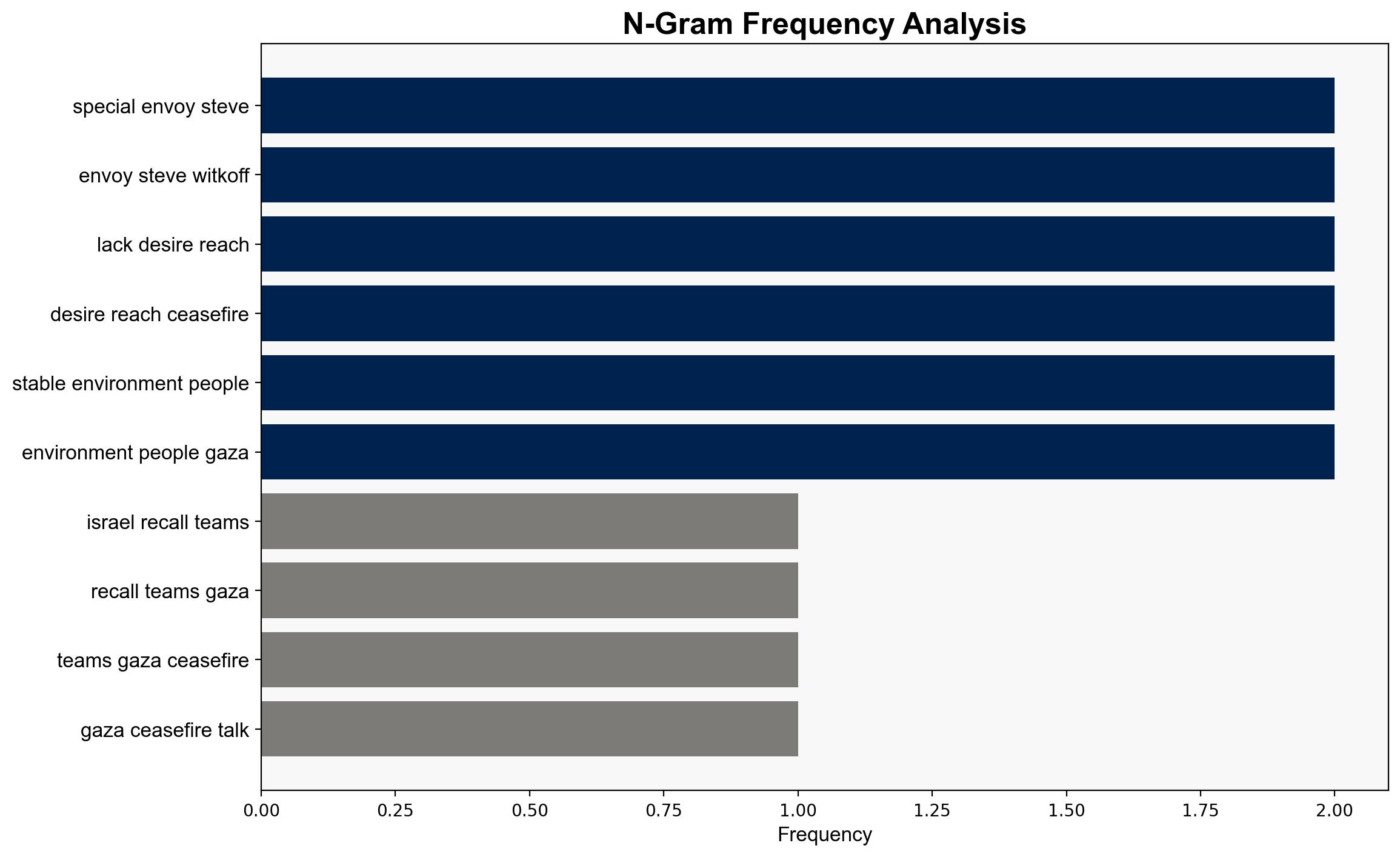US Israel recall teams from Gaza ceasefire talks after Hamas proposal – Al Jazeera English
Published on: 2025-07-24
Intelligence Report: US Israel recall teams from Gaza ceasefire talks after Hamas proposal – Al Jazeera English
1. BLUF (Bottom Line Up Front)
The most supported hypothesis is that the recall of negotiation teams by Israel and the US is a strategic maneuver to pressure Hamas into making more concessions, rather than an outright abandonment of ceasefire talks. Confidence level: Moderate. Recommended action: Continue diplomatic engagement while preparing contingency plans for potential escalation.
2. Competing Hypotheses
1. **Strategic Withdrawal Hypothesis**: The recall of negotiation teams is a tactical move by Israel and the US to exert pressure on Hamas, signaling dissatisfaction with the current proposal and pushing for more favorable terms.
2. **Breakdown in Negotiations Hypothesis**: The recall signifies a genuine breakdown in negotiations, with Israel and the US concluding that Hamas is not negotiating in good faith, thus necessitating a reassessment of their approach.
Using ACH 2.0, the Strategic Withdrawal Hypothesis is better supported. The timing of the recall, coinciding with international pressure and the humanitarian crisis, suggests a calculated move to leverage these factors. The Breakdown Hypothesis is less supported due to ongoing diplomatic efforts and the absence of a complete cessation of communication.
3. Key Assumptions and Red Flags
– Assumptions: Both hypotheses assume rational actor behavior from Israel, the US, and Hamas. The Strategic Withdrawal Hypothesis assumes Hamas is capable of making further concessions.
– Red Flags: The absence of disclosed content from Hamas’s proposal raises questions about transparency and intent. The potential for cognitive bias exists in interpreting Hamas’s actions as solely obstructive.
4. Implications and Strategic Risks
– Patterns: The recall could set a precedent for future negotiations, impacting regional stability.
– Risks: Escalation of hostilities if negotiations fail, increased humanitarian crisis, and potential for international intervention.
– Economic: Prolonged conflict could disrupt regional trade and impact global markets.
– Geopolitical: Strained US-Israel relations if perceived as mishandling the situation.
– Psychological: Increased radicalization risk among affected populations.
5. Recommendations and Outlook
- Continue back-channel communications to maintain dialogue with Hamas.
- Prepare for humanitarian aid escalation to mitigate civilian suffering.
- Scenario Projections:
- Best: Successful renegotiation leading to a temporary ceasefire.
- Worst: Complete breakdown of talks resulting in intensified conflict.
- Most Likely: Prolonged negotiations with intermittent hostilities.
6. Key Individuals and Entities
– Steve Witkoff
– Benjamin Netanyahu
– Hamas
7. Thematic Tags
national security threats, regional focus, conflict resolution, humanitarian crisis





